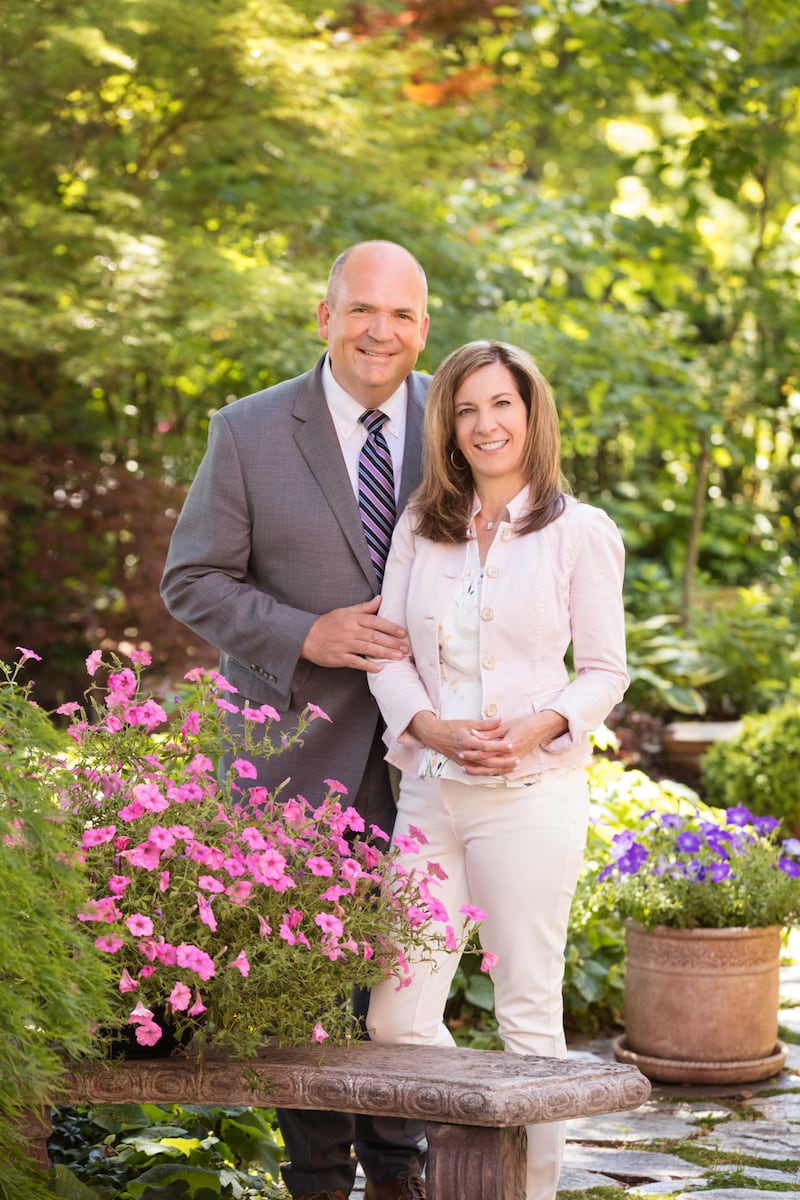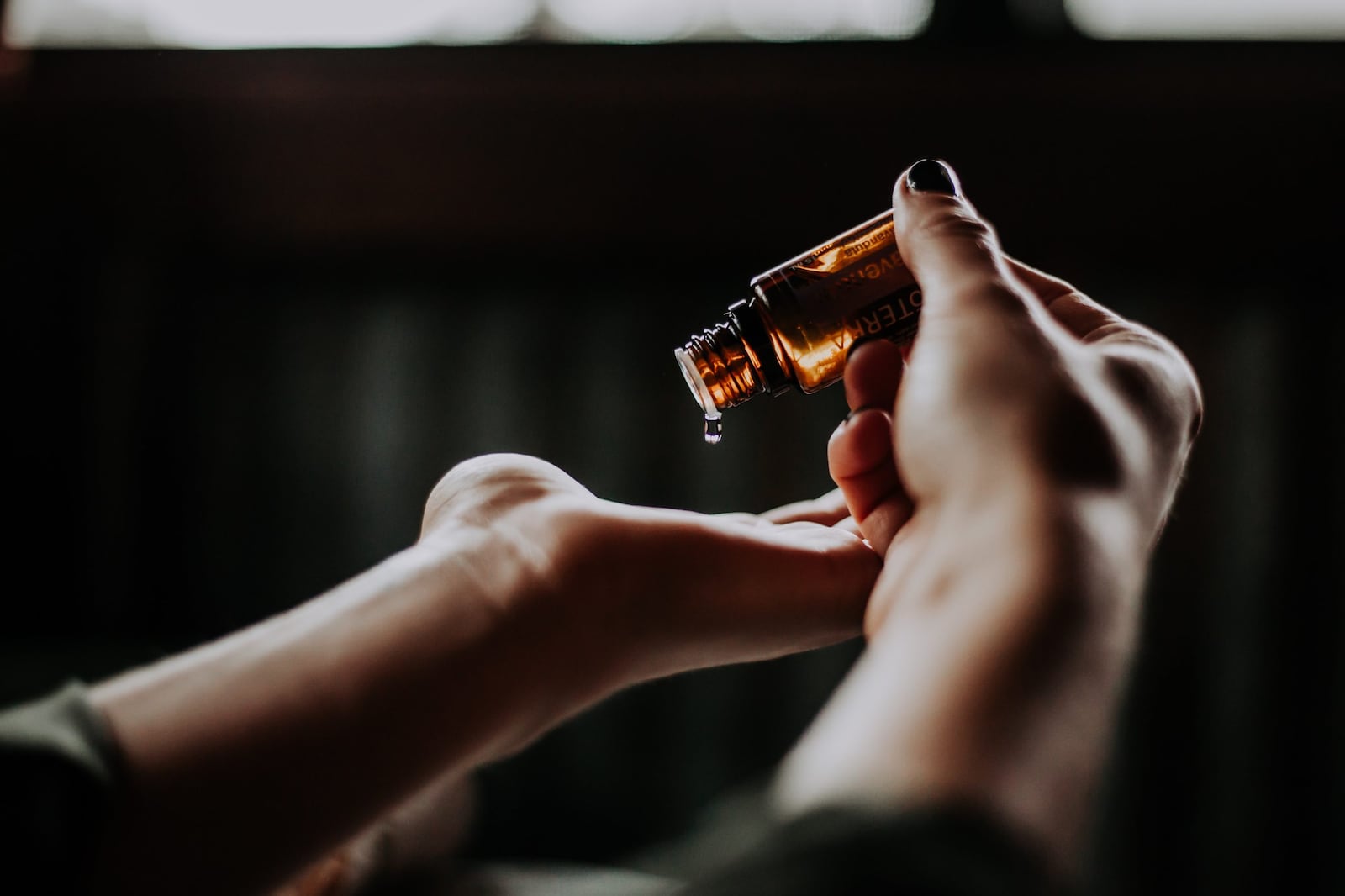The Founder Series is a column by and about Utah founders and how they got to where they are today. Click here to read past articles in the series.
In 2007, Emily Wright, Dr. David K. Hill, David Stirling, Rob Young, Mark Wolfert, Corey Lindley, and myself got together and realized that the purest essential oils were not yet being made available in the world in a systematic way. Emily proposed the idea that we start a company focused on essential oils. We all immediately and infectiously agreed. We knew that with the team that was coming together, we could begin to answer the important question of how our company could help make a difference in the world.
We had a lot of expertise amongst that initial group. For example, we had someone who could focus on sourcing the oils and others who could write up the business plan, as well as others who could formulate differentiators and strategies behind doTERRA. Emily was tasked with sourcing the essential oils, while Dr. Hill, who is one of the great essential oil educators in the world, focused on the educational aspect of the company. Rob is a great marketing mind and was the one who helped us name the company doTERRA, which means “gift of the Earth,” and also helped us position and brand it.
From the beginning, we tried to find funding to start doTERRA, but we couldn’t find partners who believed in our vision and in our mission. Ultimately, we decided to fund the company ourselves, which would prove to be a very critical and important decision.
My wife Julie and I mortgaged our home to the hilt, while the other partners took out loans, borrowed against 401(k)s, or received loans from family members—whatever it took to get the company up and running. That money went toward things like leasing an office space, hiring employees, and sourcing essential oils. All told, the group of us probably pooled together about $1-$2 million to get the company off of the ground.

Growing into a billion-dollar company
Though we eventually grew so fast that we issued capital calls for every penny that had been committed by our founders, we had—particularly in our second year—become very close to running out of cash. Even though we were growing, we were putting all of our money back into stocking inventory, so there was a time when we had to prioritize paying our distributors their commissions.
Then we had to pay our vendors and employees, and finally, we paid ourselves. In other words, we didn’t get paid. It wouldn’t be until our second year that we became profitable enough for each of us to take a very small salary—just enough to get by. There was definitely some sacrifice about paying the bills and being committed because every one of us went all-in on this venture.
Our core group of founders were all seasoned executives before starting doTERRA, so we knew from experience that once we saw consecutive monthly sales growth for four years straight, we were doing something right. We never had a down month in the first four years. When we wrote the business plan for the company back in late 2007, we projected that we would be on track to be a $100 million company after three years, and that’s exactly what we achieved at the beginning of our fourth year.
And things just continued to grow consistently from there, particularly in the US—where we have now reached well over $1 billion in sales. The first international markets we entered were Europe and Taiwan. Now we have close to 25 offices around the world servicing more than 100 different countries. We have about 3,200 employees in the US and another 2,000 globally.
Honestly, I think the reason we were so successful is because we were able to stand out from all of the other essential oil companies. When we started doTERRA, we knew there was confusion in the essential oil world about purity. Because there has never been a global standard for what is considered pure, there are a lot of companies out there that can say whatever they want to about purity. But we don’t do that.
doTERRA conducts more certified testing on our essential oils than any other company in the world. We test everything from the grower level to right before products are shipped to our customers, something that we think is critical when you’re sourcing essential oils from all over the world. The high quality of our products enables us to educate and teach about essential oils in new ways, and I am proud to have been a part of that revolution.
Giving back
Part of doTERRA’s mission is to give back to the communities where we source our essential oils, which is why we created the Healing Hands Foundation, a humanitarian charitable organization in 2010. Through our foundation, we help impoverished nations where we source essential oils, including Haiti, Nepal, Kenya, and Somalia, by building schools, medical clinics, and water wells. These contributions alone have become such a differentiator for doTERRA because, not only are we sourcing the best essential oils, but now we’re improving the lives of everyone in the value chain. What we’ve found is that as we invest in these communities, we build relationships of trust that ensure a long-lasting supply of quality essential oils.
It’s also important to us that we give back to our local community in Utah. In 2019, we had the opportunity to help fund part of the new Intermountain Primary Children’s Hospital in Lehi. When we spoke with hospital leaders about the areas that are the most difficult to get funding for, they said childhood mental wellness and behavioral health. This struck a chord with our family directly because bout 15 years ago, when Greg was serving as a bishop at our church, an 11-year-old in the congregation took his own life, leaving a lasting effect on the community. There was so much pain after losing someone so young and we saw how important it is for children to have resources and support when they’re going through difficult times.
This is why we directed our charitable contribution to the hospital’s childhood mental wellness and behavioral health area. Soon thereafter, we had the opportunity to help Lt. Governor (now Governor) Spencer Cox on his statewide suicide awareness campaign. In January 2020, we founded the Cook Center for Human Connection as a resource for children and teens struggling with mental health.
The purpose of the Cook Center for Human Connection is to bring together the best organizations, programs, and resources to prevent suicide while providing mental health support and enhancing human connections vital for people to thrive. The need for social connections and resources is even more critical during the Covid pandemic, where many children are struggling and feel isolated.
We’ve also started special projects, including ParentGuidance.org, a free resource for parents to find answers to help their children, and partnered with the Hope Squad, a school-based, peer-to-peer suicide-prevention program. The Cook Center has also produced My Life Is Worth Living, a free animated series on YouTube that’s accessible worldwide. Each episode is designed by a team of doctors, social workers, and suicide experts and focuses on issues that teens can relate to on a global scale, from cyberbullying to anxiety. We want to dismantle any stigma surrounding mental health and remove any barriers that might be in the way of teens, parents, and educators accessing this critical information and resources.
We’ve found that every school in America and ultimately every family needs access to different tools and resources when it comes to mental health. In the last year alone, 17 school districts in Utah and over 350 schools nationwide have partnered with the Cook Center. Every day more schools are joining our network; we’re finding that there’s a huge appetite to leverage our tools. Our goal is to give children, teens, and their families hope and to know that others are going through the same challenges and that they’re not alone.
From the very start, it has been our mission to give back to communities not only here in Utah, but throughout the United States, and around the world, and through our work at doTERRA and the Cook Center, we have been blessed with the opportunity to make a difference every single day.

